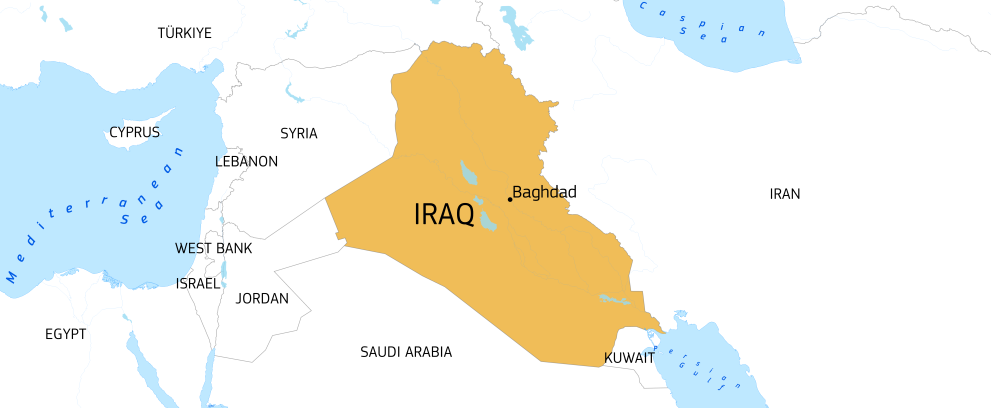Introduction
Since the end of the conflict against the Islamic State in 2018, the humanitarian crisis in Iraq has evolved from an acute crisis to a protracted one. This conflict displaced 6 million people between 2014 and 2017.
There has been a shift towards the return and reintegration of displaced people. Although 5 million people have returned to their areas of origin, some 1.2 million people remain uprooted. Access to basic services such as education and health care remains a challenge for both the displaced and families that returned home.
The EU provides humanitarian assistance with a strong focus on legal aid and protection to the most vulnerable Iraqis.
What are the needs?
To date, some 180,000 people continue to reside in 25 remaining camps for internally displaced people in the Kurdistan region of Iraq.
Additionally, around 100,000 people are living in informal sites dispersed around the country. Also, instead of returning to their areas of origin, over 500,000 people have opted to relocate to other areas, often living in inferior conditions with limited facilities.
Despite reconstruction efforts in war-torn areas, durable solutions for return only exist for about 40% of the 6 million Iraqis who were displaced during 2014-2017. 2 out of 5 Iraqis who have returned face significant challenges, including inadequate housing, and limited job opportunities and access to basic services.
Iraqis that remain displaced struggle to earn an income and provide education for their children. The lack of civil documentation is a major protection issue that hampers their access to services and hinders the return to their areas of origin.
In this post-conflict environment, Iraq is working with the international community to find more durable solutions for the return and legal recognition of displaced populations. While the focus has been on return, local integration should also be considered as a viable option.
Access to basic services such as health care, education and legal assistance are the most pressing humanitarian needs in Iraq today.

How are we helping?
The EU is a longstanding donor in Iraq, providing humanitarian aid and protection through its partners.
In 2023, the EU allocated €17 million for humanitarian programmes in Iraq. This funding primarily focuses on supporting the most vulnerable internally displaced people living in camps and informal settlements. We put a particular emphasis on education and protection, including documentation.
In addition, we give special attention to displaced people affected by camp closures, especially those unable or unwilling to return to their areas of origin. Last year, EU humanitarian aid reached over 400,000 people, primarily women and children.
In 2023, the EU’s humanitarian strategy focuses on protection services for particularly vulnerable people within the Iraqi legal system.
The EU aims to assist displaced people in obtaining a basic set of civil documents needed to move freely around the country and access key social and legal services. EU-funded multipurpose cash assistance will additionally facilitate the transition of vulnerable people with protection issues into the government’s social protection system.
National civil documentation is essential for the freedom of movement and access to assistance, health care, and education. The international community encourages the authorities to implement a more systematic approach to providing documents, including birth registration, to all Iraqis.
The EU also continues to fund activities that protect people at risk of mistreatment and abuse. We support legal and psychosocial assistance for minors in camps and detention centres.
Our humanitarian partners also provide specialised care and services for survivors of sexual violence and physical therapy, rehabilitation and prosthetics for victims of violence.
Since 2014, the EU has provided over €547 million in humanitarian aid to displaced Iraqis and Syrian refugees inside Iraq.
Last updated: 15/06/2023

